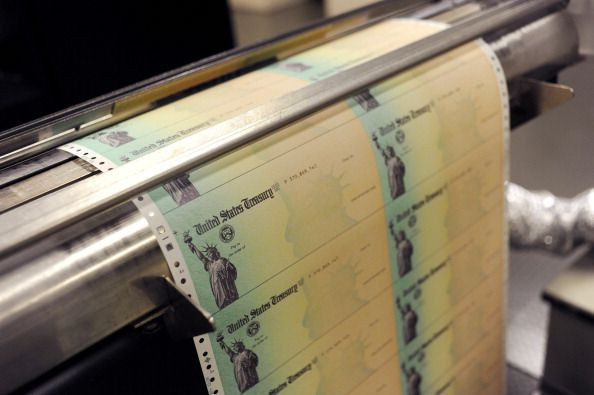Social Security: How Coronavirus Will Affect Benefits

The coronavirus pandemic has affected nearly every aspect of society, with millions of Americans being asked to stay home and businesses forced to close their doors.
Nearly three-quarters of U.S. adults are concerned that they or a loved one will be exposed to the virus, according to recent research from SurveyMonkey, and a whopping 91% are worried the pandemic will negatively affect the economy.
Older Americans who are nearing or have already reached retirement may be facing another concern, though: how COVID-19 could affect Social Security.
Coronavirus and Social Security: What you need to know
Millions of older adults rely on their Social Security benefits to make ends meet in retirement. In fact, for close to one-quarter of married couples and half of unmarried retirees, Social Security makes up at least 90% of their retirement income.
The good news is that the Social Security Administration (SSA) will continue paying out benefits as normal during the coronavirus pandemic, so if you're already receiving your monthly checks, there's no need to worry that you won't receive your normal benefit amount. However, there are some other Social Security changes to be aware of.
For one, the SSA has closed its field offices to the public to help slow the spread of the virus. That means if you have a question or need help with your benefits, you'll either need to call or go online to find answers. The SSA is urging the public to try to find help online first, because that will allow Social Security representatives to focus more on individuals in dire need via phone.
The SSA will also be extending deadlines due to the coronavirus pandemic. If you are required to provide certain documentation, you can either do so by mail or wait until the SSA offices reopen. In addition, certain functions will be postponed until further notice, including medical continuing disability reviews and the collection of overpayments.
Keep an eye out for scammers
With all of these changes happening, scammers have taken advantage of the situation to try to dupe unsuspecting victims.
There have been reports recently of beneficiaries receiving fraudulent letters saying their benefits are going to be suspended due to the coronavirus pandemic, according to the Social Security Office of the Inspector General. The letters provide a phone number beneficiaries should call to get their benefits reinstated, and then scammers mislead callers into providing personal information. Some fraudsters will also ask their victims to send cash in order to continue receiving their monthly checks.
Again, the SSA is not suspending or withholding benefits because of COVID-19. So if you receive a letter saying you're about to lose your benefits, do not respond, but do report it online.
To avoid getting scammed, make sure you know what to expect when corresponding with the SSA. The SSA will never ask for payment in the form of cash, gift cards, wire transfers, or prepaid debit cards, for example. Additionally, you'll never be threatened with arrest or legal action for not paying a fee or a fine, and the SSA will not ask for personally identifiable information via letter or email. If you ever receive a phone call, letter, or email that seems suspicious, hang up, or don't respond. You can never be too careful, and it's better to be safe than sorry.
The coronavirus pandemic is causing a lot of uncertainty among Americans right now, and it's changing the way millions of people live. While your monthly Social Security checks won't be affected by COVID-19, it is important to stay up to date on the changes occurring within the SSA. By understanding how to contact the SSA if you have questions and keeping an eye out for scammers, you can rest easy knowing your benefits are safe.
This article originally appeared in the Motley Fool. The Motley Fool has a disclosure policy.





















